Considered retirement after Achilles rupture! Tatum reveals emotional struggles and frequent tears, does not rule out returning next season
On September 24th Beijing time, the 27-year-old Celtics star Tatum gave his first detailed account of his Achilles injury in an NBC News interview, admitting he even considered retiring. Currently, he is concentrating on rehabilitation and remains open to the chance of playing next season.
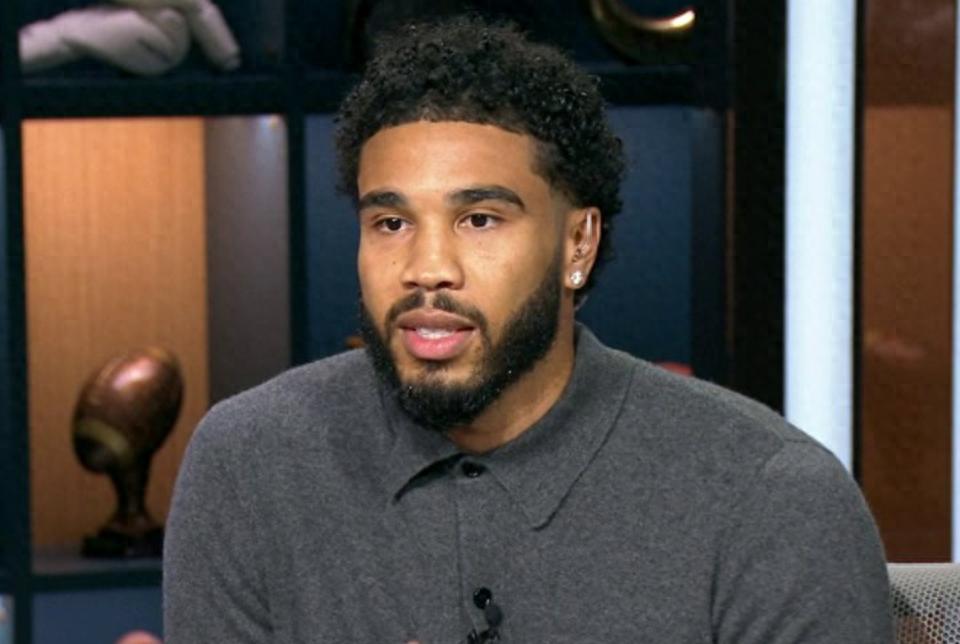
Back in early May, Tatum’s sole focus was on guiding the Boston Celtics to back-to-back NBA titles. However, by the end of May, the 27-year-old had temporarily moved back to his mother’s house to recover from his injury.
This was far from the spring he had envisioned. But during the second round of the playoffs in New York on May 13th, when Tatum tried to move and his right foot would not budge, both his Achilles and the team’s championship hopes shattered instantly.
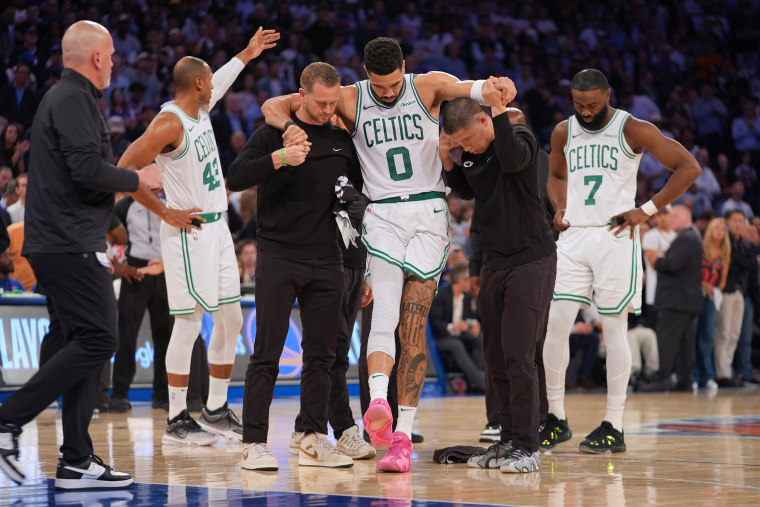
Tatum underwent surgery the following day. He said that in the nine days after the operation, he struggled to accept the sudden change in circumstances. His rehab plan forbade stair climbing for 10 weeks, but his home lacked a bedroom on the ground floor, which posed a challenge.
Fortunately, his mother’s house had a bedroom on the first floor. After moving there for a day, while having lunch in his mother’s kitchen, Tatum admitted that the shock from such an injury—one that typically sidelines athletes for an entire season—had not yet faded.
“I might have to say goodbye to basketball,” Tatum said, sharing with his mother his doubts about returning to the court. It’s important to remember he once dominated on that very stage.
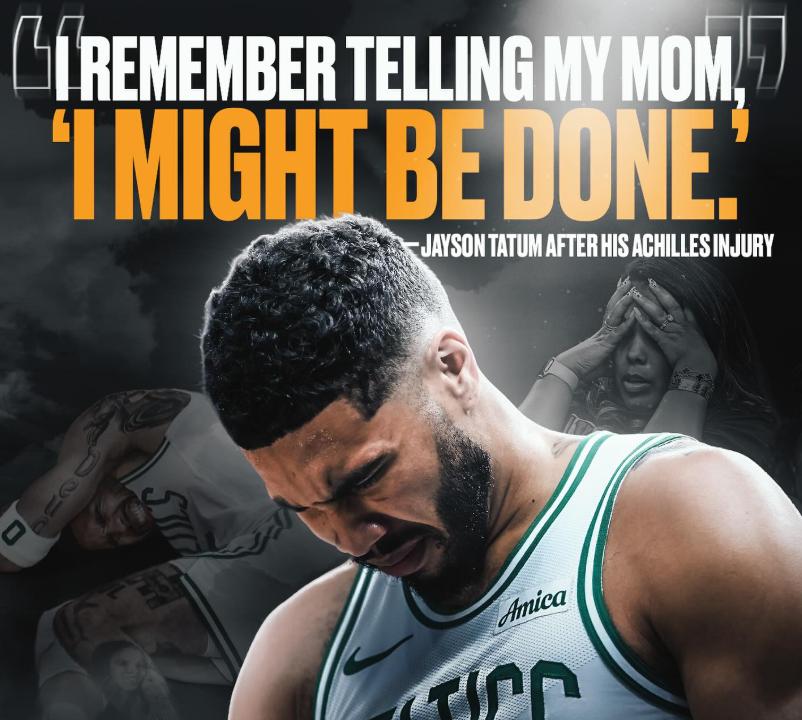
“My mom really empathized with what I was going through and understood that my feelings were genuine. But you know, she remained optimistic and kept encouraging me,” he said.
Reflecting on the injury, Tatum said: “I felt betrayed. I’ve always been the kind of player who never wants to miss games and aims to play the most minutes possible. Since entering the NBA, my playing time and game appearances easily ranked in the league’s top five. I’ve always taken care of my body and never let the team down. I rest when necessary, train, lift weights, or get treatment as scheduled.”
“So when this happened, it was really hard to accept, and I kept thinking, ‘Why me?’ For a while, I even—this might sound dramatic, but I remember telling my mom,‘Mom, I might really have to end my career. I don’t know if I can get through this or if I’m willing to face this challenge.’ That feeling of defeat was overwhelming, and sometimes I thought I never wanted to play basketball again.”
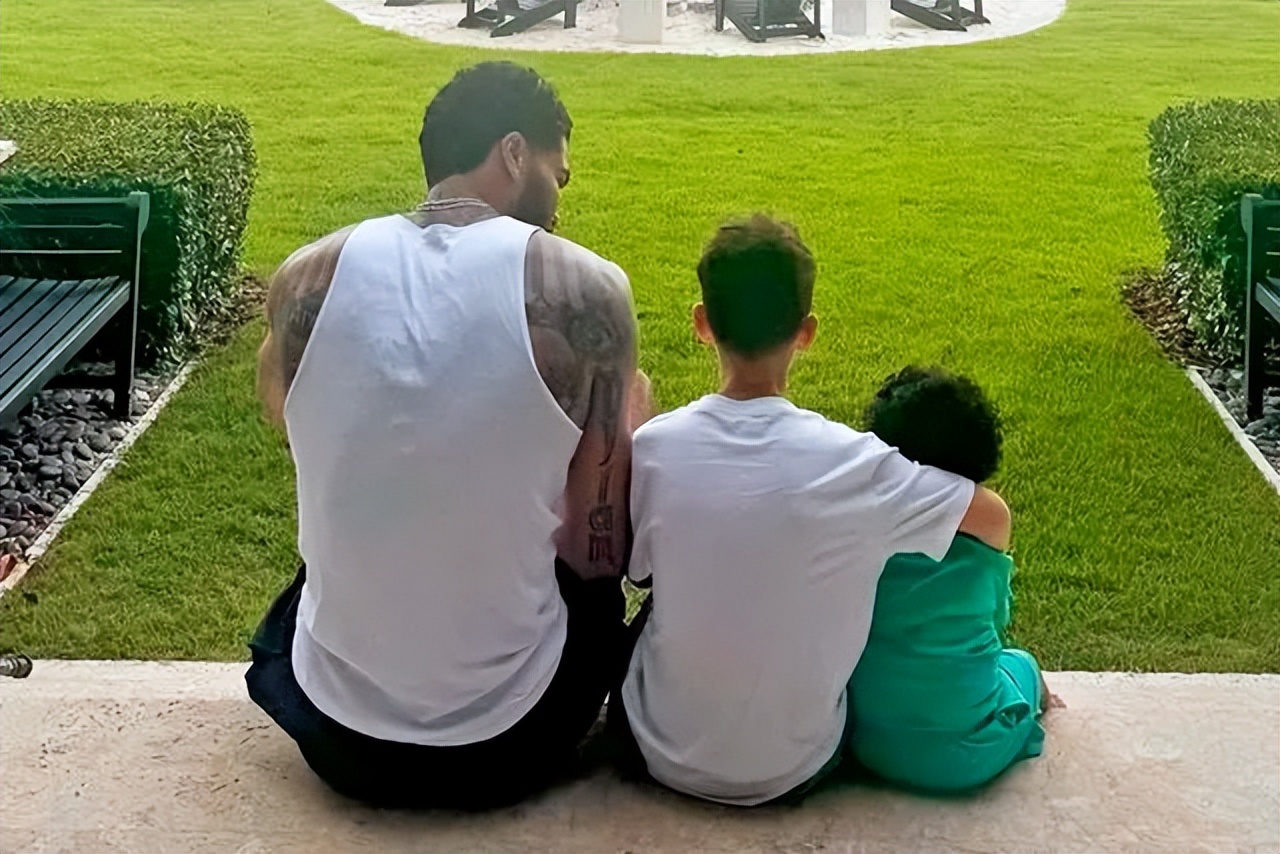
Fortunately, over the 19 weeks since the injury, Tatum gradually rediscovered the passion for basketball he first fell in love with as a child in St. Louis.
He used to measure progress by dazzling achievements—spectacular dunks, long winning streaks, deep playoff runs. Now, he focuses on accumulating “good days.” He said one of the toughest adjustments was “mentally shifting from being highly independent to relying on others.” This summer, when strangers asked about his recovery, he would reply, “One day at a time.”
“That might sound like a cliché, but that’s the reality,” Tatum said. “That’s how I view the rehab process:The most important thing is a full recovery. I’m not saying I definitely won’t play this season.”
“I don’t rule out that possibility because as a competitor, every day I go to the gym for rehab training, I’m working toward one goal—obviously, a 100% recovery, no matter how long it takes.”
By hitting small milestones, he regained bits of joy in basketball and rekindled his love for the game. Two weeks after surgery, he had stitches removed and started wearing a protective boot, which he wore for 10 weeks. A month post-op, he attempted weight-bearing activities for the first time—he said the pain was eased by painkillers.
Celtics’ basketball operations president Stevens said in June that the team’s top priority was ensuring Tatum “fully recovers” before returning to the court.
Tatum was one of three well-known NBA stars who suffered Achilles tears during last season’s playoffs, alongside Bucks guard Lillard and Pacers star Haliburton. NBA commissioner Silver said in June he didn’t believe the increase in injuries was related to the tight playoff schedule (usually a game every other day). Sports medicine experts told NBC News in June that explosive basketball moves put huge stress on the Achilles tendon, possibly raising injury risk.
Achilles injury recovery typically takes 9 to 12 months, though some athletes recover faster. Tatum knows that the late Lakers legend Kobe Bryant (whose style Tatum modeled) returned to the court just 240 days after a similar injury in 2013. Still, Tatum noted, “Everyone’s body responds differently.”
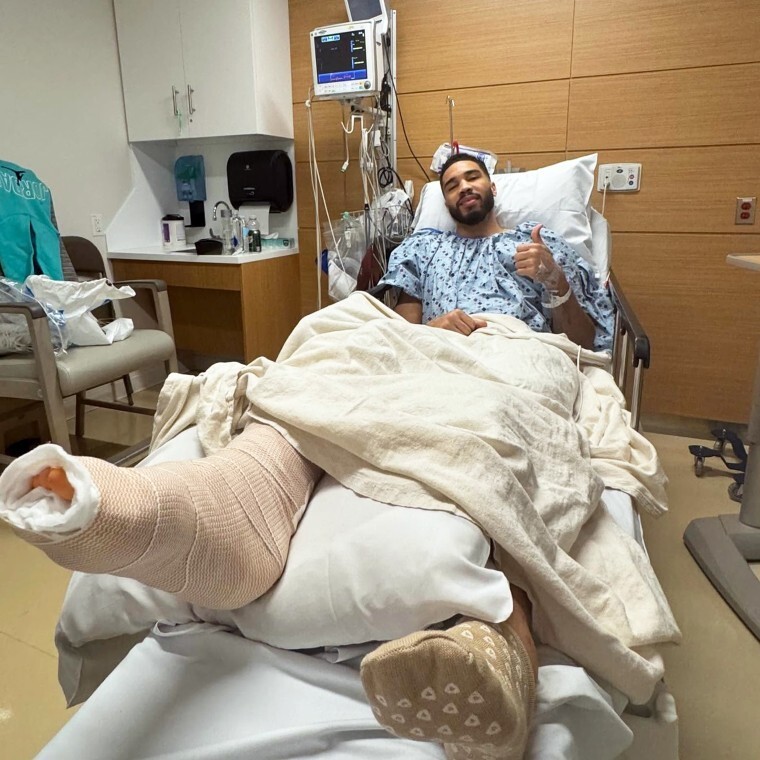
“Though it sounds cliché, what keeps me mentally grounded is asking myself: Do I feel better than yesterday? Am I stronger than yesterday? More confident than yesterday? So I don’t think about ‘being back in six months’—that goal feels too distant. I focus on tomorrow—how to feel better than today.”
Professional athletes’ lives are under public scrutiny, revolving around a routine of training, recovery, and games. But on May 13th, Tatum lost all those familiar pillars overnight. Two days later, watching a Celtics game from a hotel couch in New York, he felt deeply “abandoned” seeing the basketball world move on without him.
He said going from competing in packed arenas to spending most of his time out of the public eye, feeling basketball “was somehow taken away from me,” caused immense psychological torment.
The mental strain of going from total independence to needing help with basic tasks like showering and dressing was as painful as the physical recovery.He said showering and getting dressed could take 50 minutes, and he constantly worried about slipping on the wet bathroom floor.
“My emotions have been all over the place lately,I’ve never cried this much without warning in my life,” Tatum said. “...After every shower morning and night, I’m exhausted like I just finished a full workout. Many days I sit there in disbelief thinking, ‘This is my life now.’ Most people haven’t been through this and don’t realize how long and dark these days can be.”
A week from now, the Celtics will start training camp without Tatum, which he admits “is hard to accept.” But he is hopeful because on Monday he will begin his first basketball-related workout, with plans to gradually increase activity over the coming weeks to regain the rhythm lost that May moment.
“What I’ve been looking forward to most is getting back to being myself, back on the court,” Tatum said, “playing the basketball I love.”










 Links
Links
 Contact
Contact
 App
App


